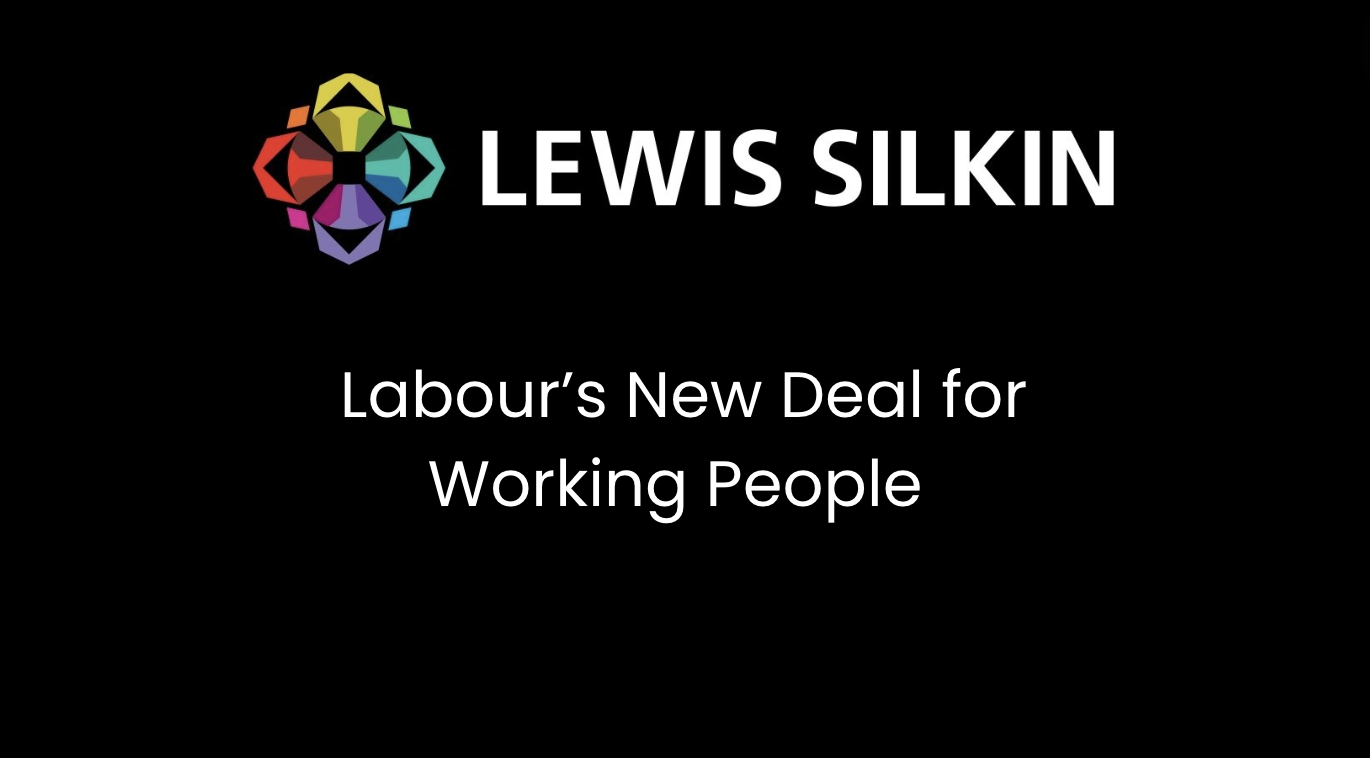
The Labour Party made its New Deal for Working People a core part of its election manifesto and a number of the proposals have subsequently been set out in the King’s Speech.
The King’s Speech confirmed the introduction of two new bills – an Employment Rights Bill and a draft Equality (Race and Disability) Bill. We’ve outlined the key points that all employers should be aware of.
Employment Rights Bill
The Employment Rights Bill is expected to be introduced in Labour’s first 100 days; therefore, this is likely to be introduced by October this year. Although it will have to go through the legislative process, employers should be aware of the following key rights that it proposes to introduce such as:
• day 1 employment rights, including the right to not be unfairly dismissed (although employers will still be able to operate probationary periods);
• a ban on ‘exploitative’ zero-hours contracts, ensuring workers have rights to a contract reflecting average hours worked and more security over shift scheduling;
• restrictions on ‘fire and re-hire’ and ‘fire and replace’;
• making flexible working the default from day 1;
• establishing a new state enforcement agency, called the Fair Work Agency; and
• new rights for unions to access workplaces and other union-friendly reforms.
The draft Equality (Race and Disability) Bill proposes to:
• extend the equal pay regime so that it covers race and disability as well as sex; and
• introduce mandatory ethnicity and disability pay reporting for employers with at least 250 people.
Other changes
Other important financial proposals that have been put forward by Labour are to:
• link the National Living Wage to the cost of living;
• remove the lower rate for 18- to 20-year-olds; and
• reform the Apprenticeship Levy.
The manifesto (although not the King’s Speech) further referenced a ban on unpaid internships. This may have significant cost implications for businesses and although unlikely to come into force until at least April 2025, those in the digital and tech sector should be aware of the likely minimum wage rises and potential additional costs for more junior employees.
Labour’s New Deal for Working People set out other employment rights that were not included in the King’s speech but could still be implemented in the future. These include:
• a ‘right to switch off’ or ‘disconnect’;
• a new threshold for redundancy consultation;
• an extension of the time limits to bring a tribunal claim (from 3 months to 6 months); and
• proposals to reform and update collective rights and trade union laws.
Importantly for the digital and tech sector, Labour have proposed a new single status of worker – which would abolish the distinction between ‘employees’ and ‘workers but there have not been detailed proposals presented yet (and this would require extensive consultation). This has the potential to impact a number of rights that former ‘workers’ would not have been entitled to and would increase employer costs via higher NI contributions, not to mention a possible spike in tribunal claims.
Finally, although there had been recent reports that the King’s Speech would announce an AI Bill, that did not materialise. The King’s Speech did commit to introducing new rules for developers of the most powerful AI models, confirming that Labour favours a tougher stance on AI regulation than the previous government. But for now, regulation looks to be targeted at specific safety concerns rather than wide ranging legislation.
A number of these changes are highly likely to be introduced in the next two years. Therefore, employers should look to review current policies, particularly where day 1 rights may have an impact or the company relies on zero-hour contracts. Companies should also look to proactively plan their resourcing over the next few years given the changes to ‘fire and re-hire’ and the financial implications linked to an increase in NMW.
Other materials
Lewis Silkin has a dedicated dashboard outlining in detail Labour’s plans for employment law which is regularly updated - employment law policy dashboard and other guidance on their Labour Policy Impact Hub. They also have an upcoming webinar on the 17th of September 2024 where they will discuss the implications of the new Labour Government, including any developments during the parliamentary summer recess, sign up here - What's happening in employment law: A Labour government special.

Carys Keeble (Associate)
 Carly Mather (Partner)
Carly Mather (Partner)









